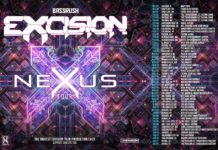Podcasting and other types of audio recording are becoming increasingly popular. They’re a great way to help you market yourself and your business. It’s important that if you do go down this route, you do so with professionalism. This not only means writing a good script but buying the right equipment as well.
This article explains what kind of equipment you might need and how you can go about choosing it.
1. High-Quality Microphone
When conducting an audio recording, you need to make sure you have a high-quality microphone. Depending on what type of sound you’re recording, you’ll need to do a mic comparison and choose the best product for you.
When choosing a product, you need to consider factors such as cost, material, weight, and recording quality. The latter is most important in terms of the sound you’re going to create.
Condenser and XLR microphones are the most sophisticated types, used for professional recordings. Dynamic brands are more reliable and durable but are better for intermediate recordings. Finally, USB mics are the easiest to use and great for beginners.
2. Proper Headphones
To record the best quality sound, you need a decent set of headphones. Headphones give you an idea of how clear and audible you are during the recording process and are an absolute must.
Comfortable headphones with accurate frequencies are a must-have if you want to create professional audio recordings.
Closed-back headphones keep the sound contained within your ears. This means no sound can escape into the rest of the room and provide awkward feedback on the microphone. These are the type of headphones recommended for high-quality Podcasting.
3. Professional Editing Software
When creating a podcast or an audio recording, having the right editing software is essential. Sound doesn’t always record perfectly, so having the right equipment to alter it is always useful.
If you are a beginner, then you might not have to worry about the details as much. If you run regular podcasts however and want to achieve a high level of professionalism, then get the right editing software.
The most common podcast editing tool is called a DAW — Digital Audio Workstation. There are however many other editing resources — both sites and apps — that can help you out, it really depends on your preferences and skill level.
4. Functioning Mixers
Mixers are an important part of the audio recording process. They aren’t essential, but they can be useful, especially if you’re looking to take your recordings to a professional level.
Your mics plug into the mixer and this gives you more control over input and output levels. You can use the mixer to alter someone’s voice to sound louder or quieter. This can save a lot of time during the recording process.
When looking for a mixer, you need to consider the number of channels available, output socket and control types, and different processing features.
5. Up to Date Recording Software
Having the right recording software is just as important as every other factor which has been discussed. There are different types of software you can use, and each has its own style.
For solo recording, you can choose a computer or web-based software. Web-based is more flexible, especially if you’re going to be changing where and when you record.
For an interview recording, you can again use a web-based system or go for something simple such as Skype or mobile recording. The latter two are perhaps less professional, but with the right equipment, the sound can be good.






